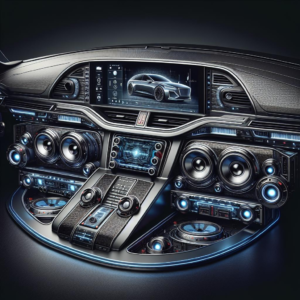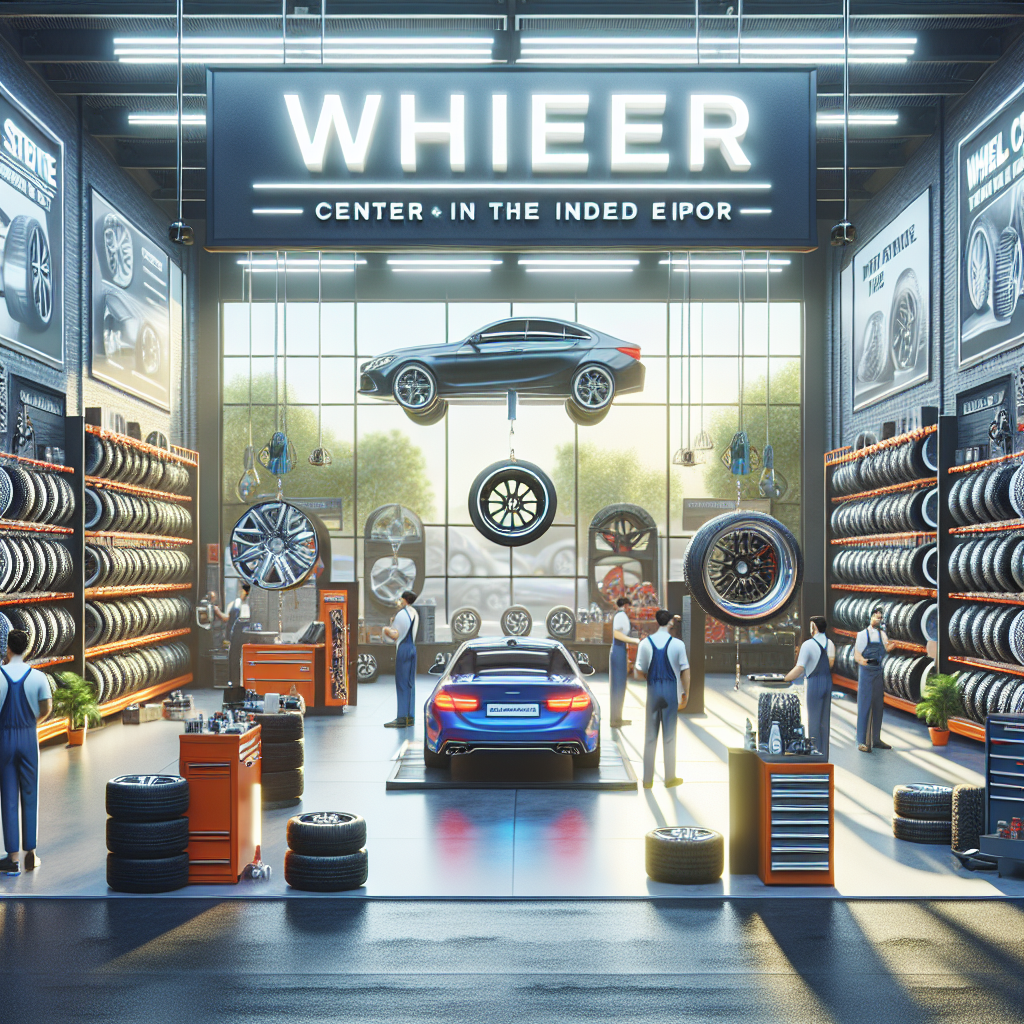Introduction
If you are looking to buy wheels in Inland Empire, look no further than Audio Vision. We are a trusted car wheel and tire shop that provides a wide selection of wheels for all types of vehicles. Whether you need new wheels for your car, truck, or SUV, we have the perfect options for you.
At Audio Vision, we understand that buying new wheels is an important investment for your vehicle. That’s why we offer high-quality wheels from top brands like Michelin, Goodyear, and Pirelli. Our extensive inventory includes various sizes, styles, and finishes to suit your preferences and vehicle specifications.
In addition to our wide selection of wheels, we also have a team of experienced technicians who can help you with wheel installation. We use state-of-the-art equipment and techniques to ensure proper wheel alignment and installation. Whether you need a simple wheel replacement or a complete tire and wheel package, our skilled technicians will get the job done right.
When you choose Audio Vision for your wheels in Inland Empire, you can expect excellent customer service and competitive prices. Our team is dedicated to providing personalized assistance and finding the perfect wheels to enhance the performance and appearance of your vehicle.
Visit Audio Vision or contact us at (909) 983-4500 to discuss your wheel needs and to explore our inventory of high-quality wheels. Trust us to help you find the best wheels for your vehicle in Inland Empire.
Benefits of Buying Used Cars
There are several benefits to buying a used car instead of a brand new one. First and foremost, used cars are generally much cheaper than new cars. This means that you can get a higher quality vehicle for your money if you opt for a used car. Additionally, used cars tend to depreciate at a slower rate than new cars, which means that they can hold their value better over time. They also often come with lower insurance costs, as the value of the car is typically lower. Another advantage of buying a used car is that there is a wider selection of models and features available, as you are not limited to the current year’s inventory.
When buying a used car, it is important to do your research and inspect the vehicle thoroughly. Look for any signs of damage or wear and tear, such as dents, rust, or worn-out tires. You should also take the car for a test drive to ensure that it runs smoothly and that all the features are in good working condition. If you are not comfortable inspecting a car yourself, you can also hire a mechanic to do a pre-purchase inspection for you.
Financing a used car is also typically easier than financing a new car, as lenders are more willing to work with buyers who are purchasing a used vehicle. You can often find competitive interest rates and flexible loan terms when financing a used car. It is always a good idea to shop around and compare loan offers from different lenders to ensure that you are getting the best deal.
Overall, buying a used car can be a smart financial decision, as it allows you to save money while still getting a reliable vehicle. Just be sure to do your due diligence and thoroughly inspect any used car before making a purchase.
Where to Buy Used Cars in Inland Empire
When it comes to buying used cars in Inland Empire, there are several options available to you. Here are some places where you can find a variety of used cars:
1. Dealerships: Many car dealerships in Inland Empire offer a wide selection of used cars. They often have certified pre-owned vehicles and provide financing options.
2. Online marketplaces: Websites such as Craigslist, Autotrader, and Cars.com allow you to search for used cars in your area. You can filter the results based on price, make, model, and other criteria.
3. Auctions: Attending car auctions in Inland Empire can be a great way to find used cars at competitive prices. However, it’s important to do thorough research on the vehicles before bidding.
4. Private sellers: You can find used cars for sale by private individuals through classified ads in local newspapers or online classifieds websites.
5. Car rental companies: Some car rental companies sell their used vehicles at discounted prices. These cars are often well-maintained and come with detailed service records.
When buying a used car, it’s important to thoroughly inspect it and check its history report. You can also hire a professional mechanic to conduct a pre-purchase inspection for you. Additionally, consider getting financing pre-approval to determine your budget and negotiate better deals.
By considering these options and doing proper research, you can find a reliable and affordable used car that meets your needs in Inland Empire.
How to Inspect a Used Car
Inspecting a used car is an important step before making a purchase to ensure that you are getting a reliable and safe vehicle. Here are some steps to follow:
1. Exterior: Start by checking the exterior of the car for any visible damages or signs of rust. Inspect the paint and body panels for any dents or scratches.
2. Tires: Check the tires for any signs of wear and tear. Look for uneven wear patterns or low tread depth, as this may indicate improper alignment or suspension issues.
3. Engine: Inspect the engine bay for any leaks or fluid stains. Check the oil dipstick for the oil level and color. It should be clear and not too dark or milky.
4. Interior: Sit inside the car and check all the features and controls. Make sure the seats and upholstery are in good condition. Test the air conditioning, heating, and other electrical components.
5. Undercarriage: Crawl under the car and check for any signs of leaks, damage, or rust on the undercarriage and exhaust system.
6. Test Drive: Take the car for a test drive to evaluate its performance. Pay attention to the engine noise, acceleration, braking, and handling. Test all the gears and make sure there are no unusual sounds or vibrations.
7. Vehicle History Report: Obtain a vehicle history report to get information about previous accidents, maintenance records, and ownership history. This will give you a better understanding of the car’s condition.
By following these steps and conducting a thorough inspection, you can make an informed decision when buying a used car.
How to Finance a Used Car
Financing a used car can be a convenient option for those who don’t have enough cash upfront to purchase a vehicle. There are several financing options available for buying a used car:
- Bank or Credit Union Loan: Many banks and credit unions offer auto loans specifically for used cars. These loans generally have competitive interest rates and terms.
- Dealer Financing: Car dealerships often have partnerships with banks or finance companies to offer financing options to their customers. Dealer financing may be more convenient, but it’s important to compare the interest rates and terms to ensure you’re getting the best deal.
- Online Lenders: There are also online lenders that specialize in auto loans for used cars. These lenders may offer competitive rates and allow you to apply for a loan from the comfort of your home.
Before you apply for a loan, it’s important to determine your budget and how much you can comfortably afford to borrow. Consider your monthly income, expenses, and any existing debts. Use an online loan calculator to estimate your monthly payments and determine how much interest you’ll pay over the life of the loan.
When applying for a loan, be prepared to provide documents such as:
- Proof of income, such as pay stubs or tax returns
- Proof of identity, such as a driver’s license or passport
- Proof of insurance
- Information about the car you’re purchasing, such as the VIN number and purchase price
Make sure to read the loan agreement carefully and understand the terms and conditions before signing. Pay attention to the interest rate, fees, and any penalties for early repayment or late payments.
How to Finance a Used Car
Financing a used car is a common option for many people who are looking to purchase a vehicle. It allows you to spread out the cost over a period of time, making it easier to afford. Here are some steps to follow when financing a used car:
- 1. Determine your budget: Before you start looking for a car, it’s important to determine how much you can afford to spend. Consider factors like your income, monthly expenses, and credit score.
- 2. Check your credit score: Your credit score will play a big role in determining the interest rate you can get on your auto loan. Request a copy of your credit report and check for any errors that could be negatively impacting your score.
- 3. Shop around for loans: It’s a good idea to get pre-approved for a loan before you start shopping for a car. This will give you an idea of how much you can borrow and what interest rates you qualify for. Shop around and compare offers from different lenders to ensure you’re getting the best deal.
- 4. Calculate your monthly payments: Use an online loan calculator to determine what your monthly payments will be based on the loan amount, interest rate, and loan term. Make sure the payments fit within your budget.
- 5. Negotiate the terms: Once you find a car you’re interested in, negotiate the price and terms of the loan. Consider factors like the length of the loan, the interest rate, and any additional fees.
- 6. Read the fine print: Before signing any loan documents, make sure to carefully read through the terms and conditions. Pay attention to things like the interest rate, repayment schedule, and any penalties for early repayment.
- 7. Make your payments: Once you’ve secured your loan, make your monthly payments on time to avoid any late fees or damage to your credit score. Consider setting up automatic payments to ensure you don’t miss any payments.
Common Problems with Used Cars
When buying a used car, it’s important to be aware of the common problems that can arise. While used cars can offer great value, they may also come with some issues that need to be addressed. Here are some common problems to watch out for:
- Engine problems: Used cars may have issues with the engine, such as leaks, overheating, or worn-out parts. These problems can lead to reduced performance and costly repairs.
- Transmission issues: The transmission is responsible for shifting gears and transferring power from the engine to the wheels. If the transmission is faulty, it can cause difficulty in changing gears or even complete failure.
- Electrical problems: Used cars may have electrical issues, such as malfunctioning lights, power windows, or audio systems. These problems can be frustrating and may require professional repairs.
- Suspension and steering problems: A used car’s suspension and steering components may be worn out or damaged, leading to a bumpy ride, poor handling, or even loss of control.
- Brake problems: Faulty brakes can compromise your safety on the road. Used cars may have brake issues, such as worn brake pads, brake fluid leaks, or malfunctioning brake systems.
- Rust and corrosion: Older used cars may have rust and corrosion damage, especially in areas that experience harsh weather conditions. Rust can weaken the car’s structure and affect its overall performance.
It’s essential to thoroughly inspect a used car for these potential problems before making a purchase. Consider getting a professional mechanic to perform a comprehensive inspection to catch any hidden issues. By being aware of these common problems, you can make an informed decision when buying a used car.
How to Avoid Buying a Used Car Lemon
Buying a used car can be a great way to save money, but it is important to be careful and avoid buying a lemon. A lemon is a car that has significant defects or problems that were not disclosed by the seller. Here are some tips to help you avoid buying a used car lemon:
- Do your research: Before buying a used car, research the make and model to learn about common issues or recalls. This will help you identify any potential problems with the car you are considering.
- Get a vehicle history report: Obtain a vehicle history report for the car you are interested in. This report will provide important information about the car’s ownership history, accident history, and any reported mechanical issues.
- Inspect the car thoroughly: Take the time to thoroughly inspect the car before making a purchase. Look for signs of damage, such as mismatched paint or signs of repairs. Test drive the car to check for any unusual noises or vibrations.
- Have a mechanic inspect the car: It is always a good idea to have a trusted mechanic inspect a used car before purchasing. They will be able to identify any hidden problems or potential issues that may not be apparent to the untrained eye.
- Check for a valid warranty: If the used car still has some time left on its original manufacturer’s warranty, this can provide added peace of mind. Check to see if the warranty is transferable to you as the new owner.
- Be wary of deals that seem too good to be true: If a used car is priced significantly below market value, it may be a sign that there are hidden problems. Be cautious and do not be afraid to walk away from a deal that seems too good to be true.
How to Get a Good Deal on a Used Car
If you’re in the market for a used car, getting a good deal is likely at the forefront of your mind. Here are some tips to help you get the best possible price on a used car:
- Do your research: Before you start shopping, research the make and model of the car you’re interested in. Look up its average price range and any common issues or recalls associated with that model. This will give you an idea of what to expect and help you negotiate a better price.
- Shop around: Don’t settle for the first car you find. Visit multiple dealerships, check online listings, and consider private sellers. By comparing prices and negotiating with multiple sellers, you increase your chances of finding a good deal.
- Inspect the car: Before buying a used car, thoroughly inspect it for any signs of damage or mechanical issues. Take it for a test drive to check for any unusual noises or performance problems. If you’re not comfortable doing this yourself, consider hiring a professional mechanic to do a pre-purchase inspection.
- Consider the car’s history: Obtain a vehicle history report to find out if the car has been in any accidents or has a salvaged title. This information can affect the car’s value and give you leverage when negotiating the price.
- Negotiate: Always be prepared to negotiate the price. Start with a lower offer and be willing to walk away if the seller is not willing to meet your price. Don’t be afraid to use the car’s history or any issues you find during the inspection as bargaining chips.
Audio Vision | Car Audio West Covina

Looking for car audio west covina? Audio Vision is the best place to buy car audio in West Covina.
Product Brand: Audio Vision
Product Currency: USD
Product Price: $299
Product In-Stock: InStock
5





